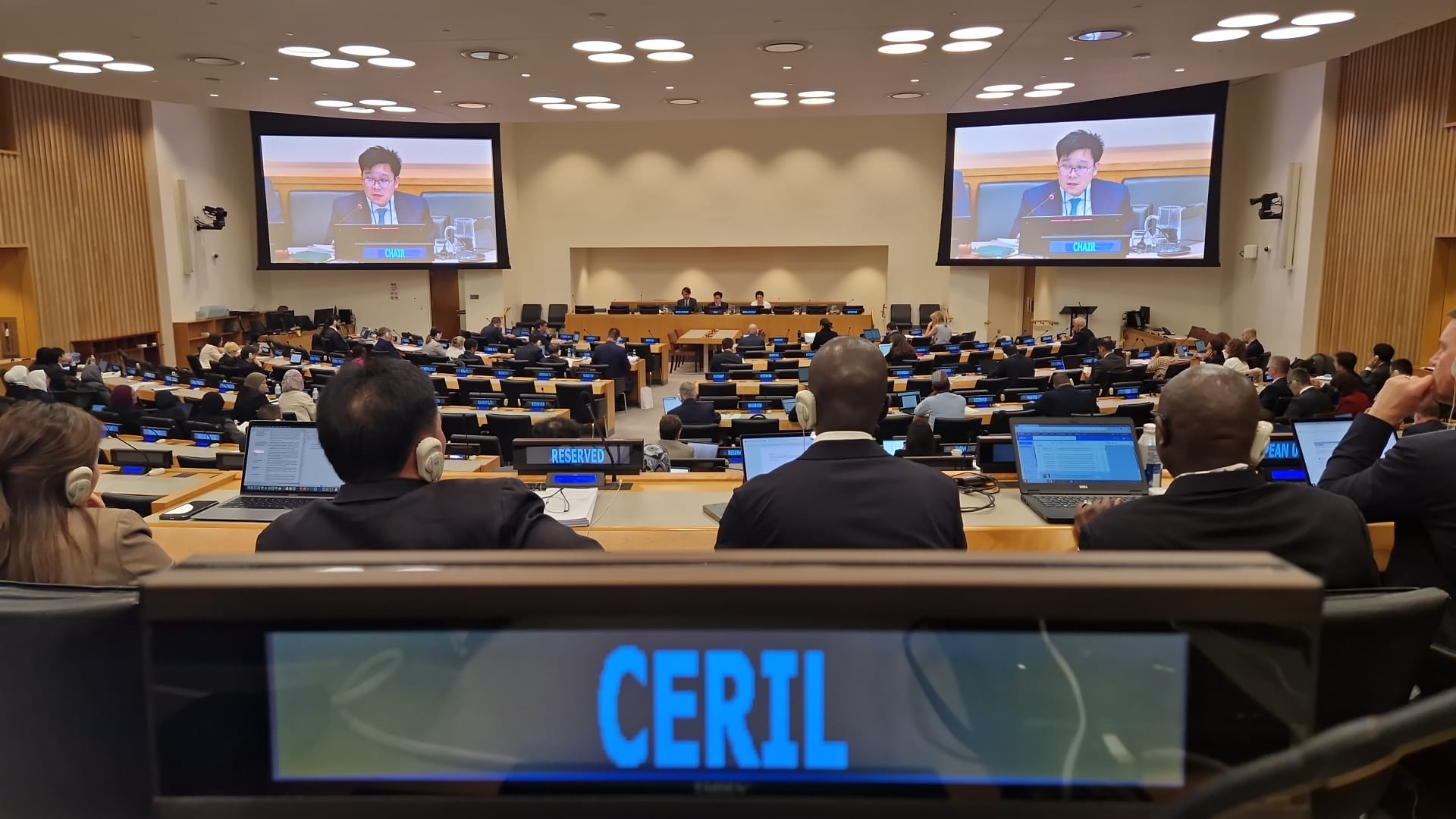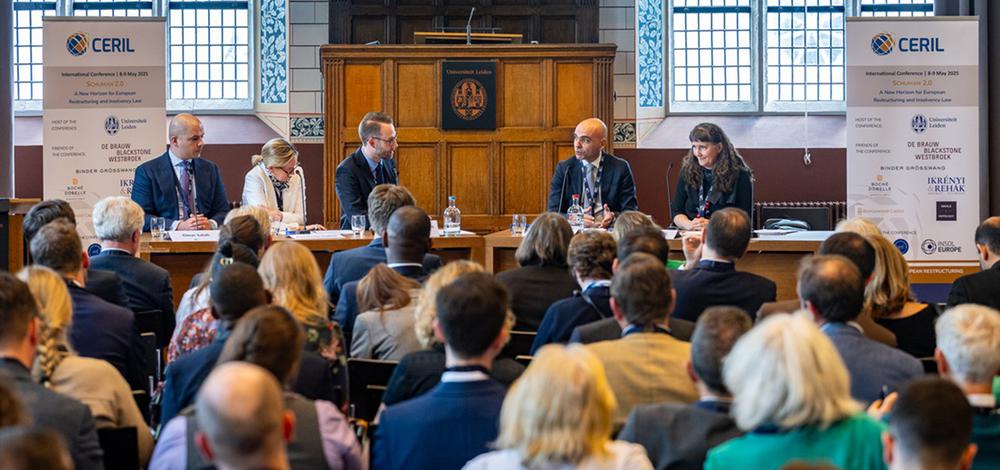Report on the 66th UNCITRAL WG V meeting

UNCITRAL Working Group V held its 66th session in New York from 12 – 16 May 2025. The topics for discussion were: (i) asset tracing and recovery in insolvency proceedings and (ii) applicable law in insolvency proceedings. More detail of the session is set out below. In due course, the official report of the session will also be made available on the UNCITRAL website.
Report by CERIL Delegate to the WG V meeting: Kathlene Burke (Ireland)
Asset tracing
In relation to asset tracing, the following paper was before the meeting: WP 201: asset tracing and recovery in insolvency proceedings . This is a combination of a narrative of the various asset tracing tools, when they can be used and their purpose as well as a toolkit (which is placed ahead of the narrative). Two previously separate papers have now been merged to create this standalone document.
The paper was at an almost final stage even before the meetings commenced and we are pleased to say that on Monday afternoon the discussions on asset tracing and WP 201 concluded.
Outcome: The Working Group decided to make some minimal changes to the paper as presented (very mostly linguistical and to assist readability, but also to add a few footnotes with additional examples, e.g. a reference to “gag and seal” orders. As a reminder, the text is educational in nature – and of practical help to those engaged in asset tracing. It is not a model law.
Next steps: the paper will be put forward to the UN Commission at its meeting in July (7-25) for adoption by the UN.
Applicable law
The Working Group discussed WP 202 in the following order to devote substantial time for the following topics:
- Treatment of secured creditors – this has been a very controversial topic in the last few sessions of the Working Group, with the cultural difference and difference in regimes between the US system and the EU systems being very apparent. A good day was spent on this topic.
- Base rule: acceptance that the insolvency treatment of secured creditors should follow the lex fori concursus.
- Safeguard: the working group considered a few options to consider and came up with new language: “Notwithstanding para. 1 (j) (…), the treatment of a secured claim/right in rem in respect of the debtor’s immovable assets shall be governed by the lex rei sitae if the lex fori concursus: (i) [substantially] impairs the value of the encumbered immovable asset as compared to lex rei sitae; or (ii) unduly interferes with a timely liquidation of the secured claim/right in rem as compared to lex rei sitae.”
- Open topics still include: (i) whether this should only be the case in relation to immovable property or immovable and movables – and if it includes movables how their lex rei sitae could be identified; (ii) whether we should include the word “substantial” and (iii) whether deference should only be given to the lex fori concursus if it is the COMI jurisdiction.
- Avoidance transactions. Two options were presented to the group: avoidance actions subject to the lex forum concursus but subject to the carve out that if the debtor had a different COMI (and therefore the creditor had a different expectation of where insolvency proceedings would arise) then the avoidance laws should be those of the COMI that the debtor had at the time of entry into the transaction. The alternative was simply to have a general carve out to protect the legitimate expectations of the creditor. The group decided to retain option 1 (so the carve out is linked to the debtor’s COMI).
- Treatment of set off. Almost no progress was made here so the current text will be reconsidered again (with very minor language modifications).
- Ongoing arbitration proceedings/ litigation. The working group had reached an impasse at its last session. After some discussion the only commonality that could be agreed on was that arbitration, litigation and mediation should all be treated in the same vein. The EU proposed some language here as a starting point for consensus giving priority to the arbitration forum but only if that law did not substantially disadvantage a creditor with regards the stay of the arbitration proceedings and the right of the insolvency officeholder to be heard. (The detailed language will be in the report). Whilst some (mainly EU delegations) expressed their support, the US and Canada made very clear that they could not support such as position. Other proposals were discussed, including a proposal by Switzerland to simply instruct the forum court to take into account any pending arbitration or litigation proceedings. The matter was left open for delegations to discuss further ahead of the next meeting.
- Chapter III. The working group made a start on Chapter III which deals with the integration of cross border situations – whereas Chapter II deals with domestic situations. There was consensus that Chapter III was to create a framework to give effect (by a receiving state) to the rules agreed upon in Chapter II. Different ways of doing so were mooted, such as giving effect to the foreign law by applying the foreign law in the receiving court or by using local tools to provide essentially equivalent effect to the position as it would be in the originating jurisdiction. There was a lively debate as to whether the receiving court should only be so instructed if the foreign proceedings were main proceedings (i.e. COMI country) or whether it should always be encouraged to do so but with consideration as to whether the requesting court is a COMI court or not.
The last discussion on this topic focused on the nature of the text to be produced. Opinions here varied as to whether the text should form a stand alone model law, whether it should update the current sections in the Legislative Guide or indeed both. There was no conclusion on this point, but the secretariat was instructed to develop it in the form of a model law.
Any other business
- The asset tracing paper and future work proposals will be considered by the UN Commission on Monday 14 July. Future working papers will be published on the UNCITRAL.
- Dates for Working Group V meeting – proposal is to move to 8 – 12 December 2025 (this will be confirmed in July).


Comments
Log in to read and post comments